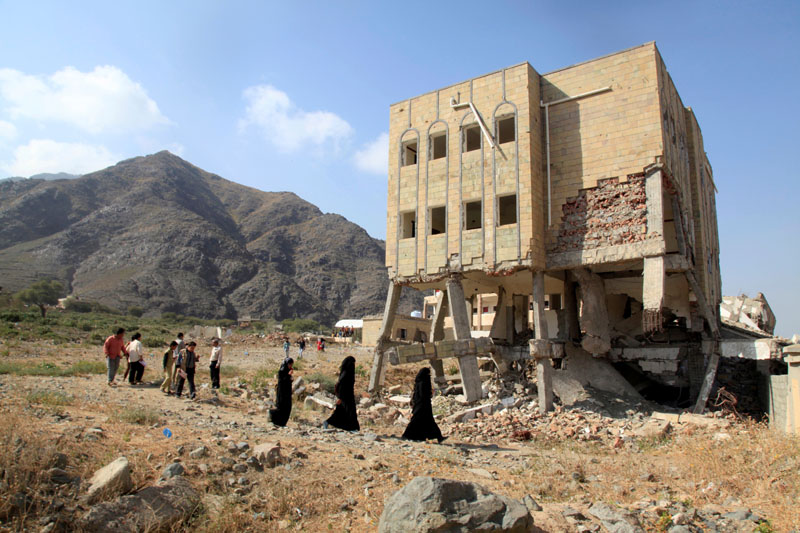Separatist group in Yemen announces self-rule in country's south
ADEN: Yemen's separatist Southern Transitional Council (STC) early on Sunday announced it would establish self-rule in regions under their control, which the Saudi-backed government warned would have "catastrophic consequences".
The move threatens to renew the conflict between nominal allies in Yemen's multifaceted war as the United Nations is trying to secure a permanent truce to combat the coronavirus pandemic in a country weakened by hunger and disease.
Reuters witnesses reported the deployment of STC armed forces in Aden, the interim seat of the internationally recognised government backed by the Saudi-led military coalition that includes the STC.
In a statement, the STC announced emergency rules in Aden and all southern governorates.
Last year, the STC, which is backed by Riyadh's main coalition partner the United Arab Emirates, turned on the government of Abd-Rabbu Mansour Hadi and seized Aden, with violence spilling over to other southern areas.
Saudi Arabia brokered a deal in November between them to form a more inclusive government and place all forces under state control, but the new cabinet has not been formed.
"The announcement by the so-called transitional council of its intention to establish a southern administration is a resumption of its armed insurgency ... and an announcement of its rejection and complete withdrawal from the Riyadh agreement," Yemen's Foreign Minister Mohammed Al-Hadhrami said in a ministry statement on Twitter.
The STC "will bear alone the dangerous and catastrophic consequences for such an announcement", the statement said.
CORONAVIRUS CEASEFIRE
Yemen has been mired in violence since the Iran-aligned Houthi movement ousted Hadi's government from power in the capital, Sanaa, in late 2014, prompting the Saudi-led coalition to intervene on Hadi's behalf in March 2015.
The conflict, seen as a proxy war between Saudi Arabia and Iran, has been in a military stalemate for years and the Houthis still hold most major cities despite fighting that has killed over 100,000.
On Friday, the coalition extended by one month a unilateral nationwide ceasefire prompted by a U.N. plea to focus on the coronavirus pandemic. The Houthis did not accept the initial two-week truce and violence has continued in several provinces.
While Yemen has reported only one confirmed case of the novel coronavirus, aid groups fear a catastrophic outbreak should it spread among a malnourished population in a country with shattered health systems and inadequate testing capabilities.
The U.N. is trying to convene virtual talks to forge a permanent truce, coordinate coronavirus efforts and agree on humanitarian and economic confidence-building measures to restart peace negotiations stalled since late 2018.
The STC, which has said it wants to be included in any political negotiations, in January pulled out of committees implementing the Riyadh deal, which Saudi Arabia had hailed as a step towards a wider political solution to the war.
The UAE, which like STC opposes the Islamist Islah party that forms the backbone of Hadi's government, largely scaled down its presence in the war last year, but retains influence through the thousands of southern fighters it backs.






